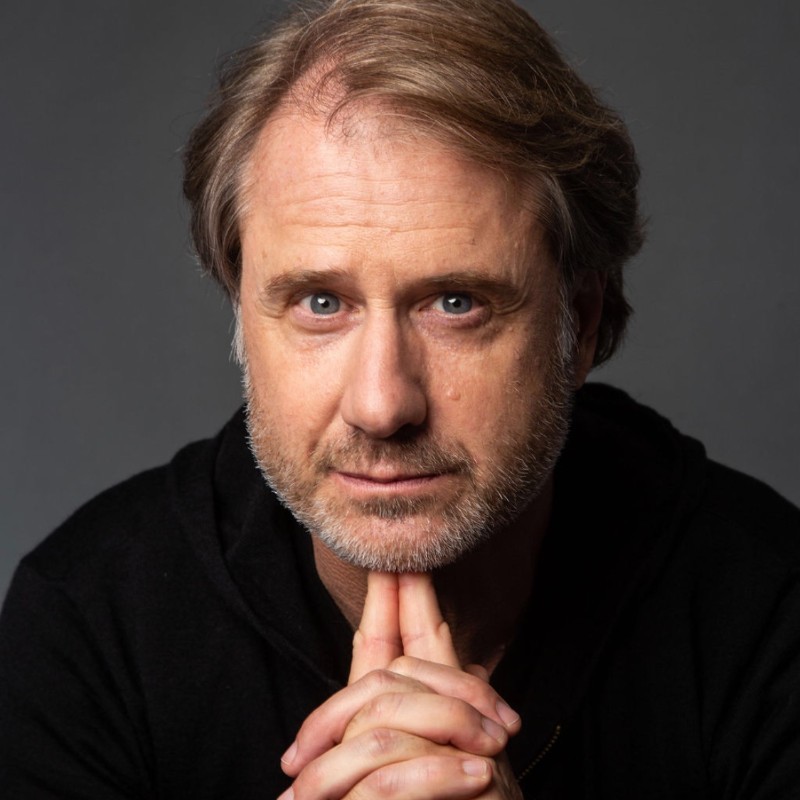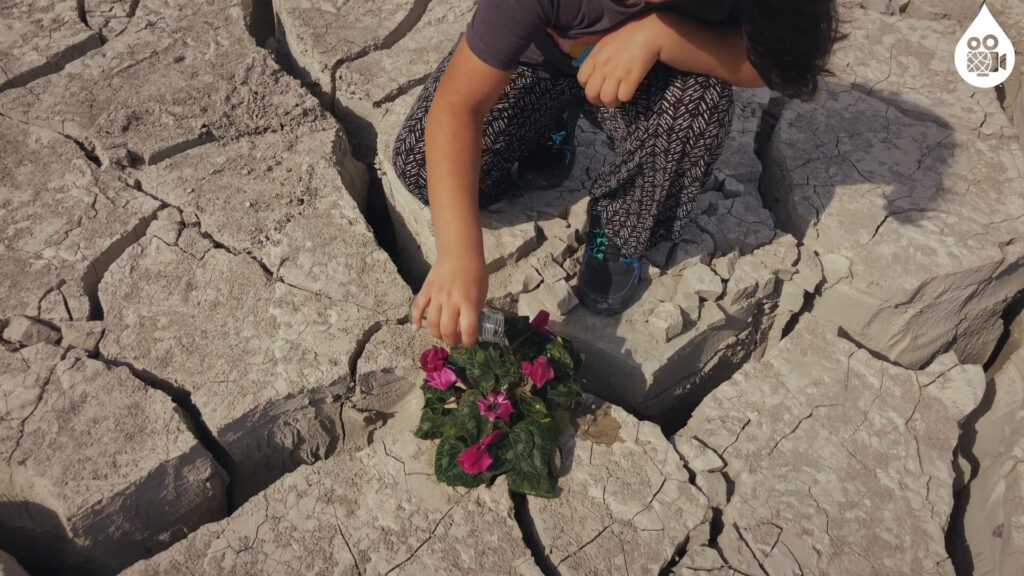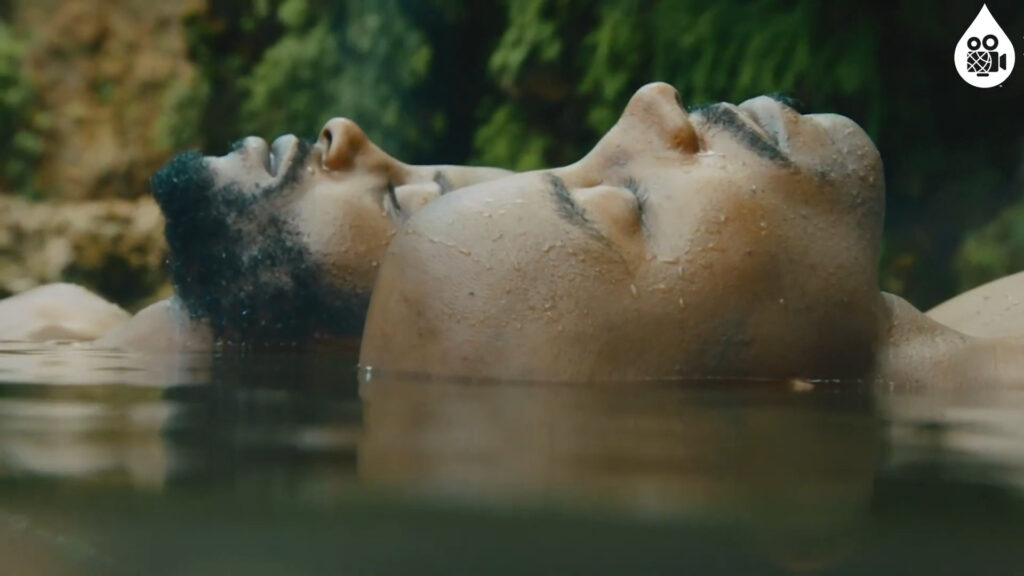Gay environmentalist launches film festival on water crisis
Do you know what your water footprint is? Do you know it takes 2880 gallons of water to produce one pair of jeans? Is environmentalist one of your identities? Does environmental advocacy relates to queerness? If you answered ‘no’ to these questions, read on!
Water connects every aspect of life and yet, there’s little to no conversation about the water crises we’re currently facing: 4 billion people experience severe water scarcity for at least one month each year; over 2 billion people live in countries where water supply is inadequate; half of the world’s population could be living in areas facing water scarcity by 2025.
Founded in 2022 by filmmaker and environmental advocate Robert Strand, the nonprofit World Water Film Festival focuses on uplifting stories about the human-water relationship to inspire equitable action. Strand, an out gay man, says, “News coverage alone won’t inspire change on the global water crisis; it is creatives who will save the day. By combining art with activism, we strive to enhance relationships between filmmakers, organizations, and the entire human population to build advocacy and activism in water-related matters.”
As 440 water organizations gather in New York City for the UN 2023 Water Conference, the WWFF will launch its inaugural event on March 19, hosted by the Columbia Climate School’s Water Center. Taking place across three floors at The Forum at Columbia University (601 W 125th St, New York, NY 10027) from 9 a.m. – 7 p.m., WWFF will showcase a variety of 70 short and feature films made by water advocates from around the world, featuring workshops, guest speakers, and a “Women in Water Energy & Film” summit led by Senior Healthcare Strategist for the White House Commission on Health Prevention and Youth for Global Health & Social Justice founder, Dr. Sheryl Simmons.
The event is free and open to the public. We caught up with Robert Strand on the eve of the event.
Q40: When did you become an environmental advocate? Was it a lightbulb moment or was it a gradual awakening?
Robert Strand: Environmental advocacy is supremely important, and I identify specifically as a water advocate. Water is essential to life and I have learned there is little governance over many important issues, and a lack of leadership in the private and public sector when it comes to water. The idea for the World Water Film Festival started with the death of my acting teacher. In her goodbye message to her students, she encouraged us to take risks and do something good with our skills.
My first introduction to water issues was discovering there is a serious problem with people flushing unused medications down the toilet, which one can’t do! Most water treatment systems were never designed to filter out pharmaceutical pollution. So, a comedic short film concept fell out of my head, onto a page, and now onto a screen about the importance of not flushing medications! In looking for a film festival about water, I couldn’t find one. So, I created one. The World Water Film Festival. I’ve gradually awoken to realize that scientists and policy makers need the creatives to tell the stories to influence change.

Who are some of your biggest influences, teachers, mentors?
The late NBA Commission David Stern is one of the greatest sources of inspiration. I had the pleasure and privilege to work under David during his tenure years ago and, among other things, learned from him the power of leveraging a platform and media to inspire social change. For the 1992 Olympics, David had put together the “NBA Dream Team,” which included Magic Johnson, Larry Bird, and Michael Jordan, to name a few. The reason was not simply to showcase the power of American athletes on a global stage and drive revenue from sponsorships and consumer products. Magic Johnson had been diagnosed with HIV, and at the time, people didn’t understand the virus. They were afraid to be in the same room with someone HIV positive for fear of catching the disease, let alone sweating on a basketball court. So David created the Dream Team with Magic center court to show the world not to be afraid of HIV. He would also use the power of video in sales pitches, stating: “Why tell you all about it when I can show you.” And when you look at the global popularity of basketball and the NBA you can see how that’s turned out for them.
From my mother, I was taught “Today is the first day of the rest of your life”, and long before Yoda and Star Wars was a thing, “Try is not a word in the English vocabulary. You show up and do your best.” And then there’s my dad. When I graduated from college as a liberal arts major, my dad said he didn’t know what advice to give me so instead, he told me, “If you ever find yourself on a long flight and the person sitting next to you is driving you nuts, change seats.” And I laughed at the time, thinking it was the worst advice, but it indeed was the best advice I could have received. So before I decide on a collaborator, who I want to work with or hire, I ask myself this question: “If I’m on a long flight to Hong Kong, will I go nuts or enjoy sitting next to them?” It’s my litmus test.
Our LGBTQ community activism is centered mostly around identity — self-determination and acceptance. I have for a long time worried that natural scarcity such as a water shortage, an extinction event, or climate change will sideline those sociopolitical objectives. How might our community’s objectives be connected to environmentalism? And how should we be? Any intersections you can think of?
The LGBTQ community is a lot like water. We are essential, everywhere, but not always visible; 99% of all freshwater we need to live is contained in groundwater – not rivers, lakes and reservoirs, and there is very little governance over the protection of groundwater! We are at a precipice where we need to advocate for and fight for the protection of water, and the science and policy communities (on water) are often not aligned.
I feel the LGBTQ community is perfectly poised to teach people how to advocate for and fight for rights given our fairly recent history.
The way water is abused and mistreated is often blind to the abuser and they don’t realize how their actions do damage. For example, in the state of Wisconsin, they use too much road salt on the roads during winter months to the point they are at a risk of permanently salienating fresh water supplies, and it is incumbent upon the water authority to reach out to the road maintenance people and advocate for protections. Road salt is already in measurable quantities in the state capital’s (Madison) drinking water.
So, while environmental issues are so very important, most critical is water, as without it, we simply can’t survive. We need to build being a water advocate into a thing. As the climate emergency escalates, we have a once-in-a-generation opportunity to change the way we interact with water. I encourage people to learn about Fair Water Footprints — launched at COP26, the Glasgow Declaration for Fair Water Footprints aims to transform the way the world’s water resources are managed — to build climate resilience, and support the needs of communities, businesses and ecosystems, and ensure water and sanitation for all by 2030.
Put simply: it takes 2880 gallons of water to produce one pair of jeans from start to finish. 1800 gallons of water to produce one pound of ground beef. So being a water advocate is about more that a water filter or water reducing shower head – it is about understanding your water footprint. So, for example, if you eat beef, and you go vegetarian one or two days a week, you’ve reduced your water footprint and have already contributed to being part of the solution.

Beyond this event on 3/19, what are the best ways for us to follow your work and causes and support them?
Learn what water issues are in your community and seek to understand how to be part of the solution. Watch our partner organizations film Brave Blue World on Netflix and look out for their sequel Our Blue World! Ask your elected officials their position on water issues in your community and vote for water. Then come to our in-person and online events! Please follow our social media to stay current as our event on the 19th is the launch of a movement.
An online version of the World Water Film Festival will be available on Eventive on March 19-March 26th. To learn more, visit www.worldwaterff.org.






